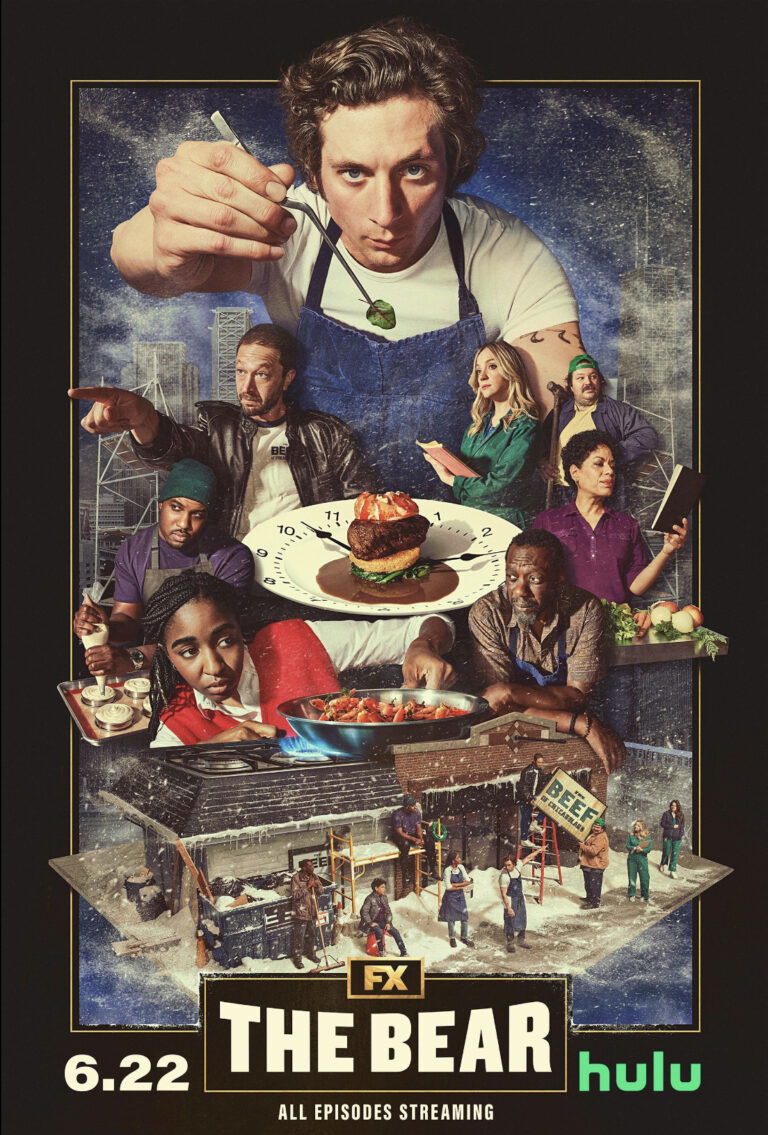“The Bear is Back with a Roar”

| None | Light | Moderate | Heavy | |
|---|---|---|---|---|
| Language | ||||
| Violence | ||||
| Sex | ||||
| Nudity |
What You Need To Know:
Carmy’s primary objective, to honor his late brother’s legacy, is admirable. Although he is prone to losing his temper, he demonstrates time and again that he cares deeply for the people who share this vision, especially his family members and his right hand, Sydney. The bonds between them are strengthened as they learn to act selflessly towards each other. Although the series is blemished by foul language, uses of the Lord’s name in vain, and a brief, ambiguous sex scene, its core themes of family, friendship, love, and determination are consistent with a moral worldview. Teenagers and adults should exercise caution when choosing whether to view this imperfect but artistically and morally compelling program.
Content:
Family and friendship are central, characters who initially mistreat each other grow to be selfless and value one another, familial bonds stay strong in the face of dysfunction and tribulation, the protagonist’s objective is to honor his brother’s memory and make him proud with his work, characters learn to apologize and take responsibility for their actions.
Heavy foul language (including frequent F-words), uses of the Lord’s name in vain (especially “J—s C—-t”).
Minor scenes of fisticuffs when characters lose their temper.
One brief, ambiguous sex scene where we see only the silhouettes of an unmarried couple in bed.
None.
Mild alcohol use, no drunkenness depicted.
Several major characters smoke cigarettes regularly, a minor character smokes crack in an alley, but it is condemned.
Heavy family dysfunction involving mental illness and verbal abuse, characters act selfishly but mostly change throughout the season.
More Detail:
Once again, Christopher Storer, The Bear’s creator and showrunner, pushes the envelope of cable television with unconventional editing, ambitious camera work, and a singularly complex antihero. Jeremy Allen White reprises his role as Carmy Berzatto, whose moniker gives the show its title. Carmy’s mental instability, established in the first season, is explored more deeply, including in a flashback episode to before his brother’s death that displays the Berzatto clan’s dysfunction in all its proverbial glory. White’s brilliant performance elicits compassion and disapprobation in equal measure, as the viewer empathizes with Carmy’s considerable struggles while smacking their forehead in irritation at his unwillingness to grow beyond them. As in season one, the writing is stellar, with Carmy, Sydney, Richie, Natalie, and the rest of the characters taken to new depths. The show’s premise is straightforward; nevertheless, the viewer is on the edge of their seat through every minute.
For all his faults, Carmy’s primary objective is estimable: to honor his late brother’s legacy by turning his restaurant into an establishment that he would be proud of. Although he is prone to losing his temper and cursing out his staff, he demonstrates time and again that he cares deeply for the men and women who share this vision, especially his sister, Natalie, his cousin Richie, and his right hand, Sydney. The bond between the four of them, and the rest of the chefs at the Bear, is essential for their mutual success and is strengthened as they learn to act selflessly towards each other. Although the series is blemished by heavy foul language, uses of the Lord’s name in vain, and a brief, ambiguous sex scene, its core themes of family, friendship, love, and determination in the face of trials both inner and outward are consistent with a moral, biblical worldview. Teenagers and adults should exercise caution when choosing whether or not to view this imperfect but artistically and morally compelling program.


 - Content:
- Content: 
